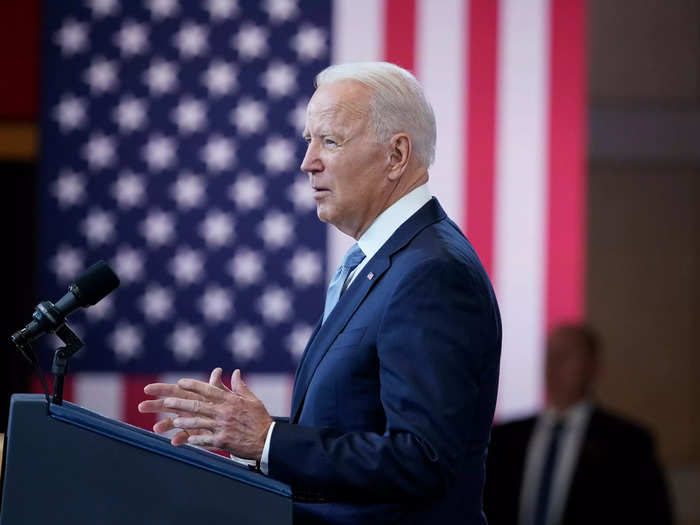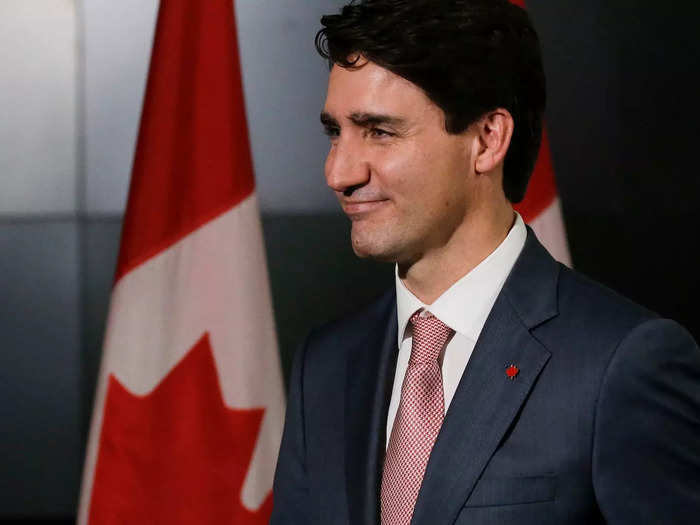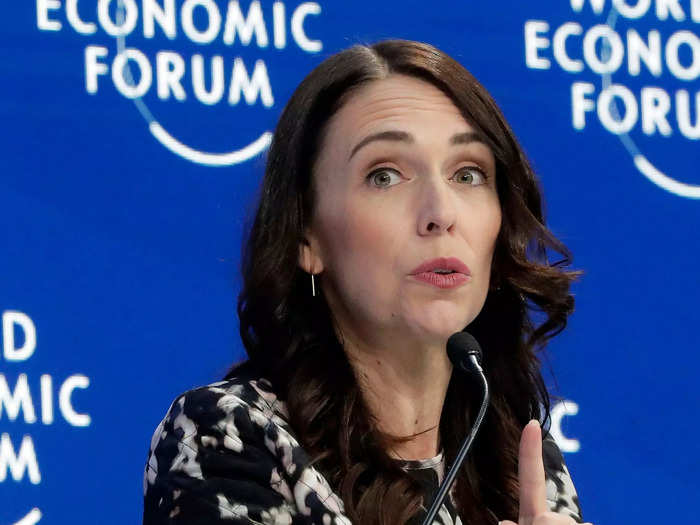US President Joe Biden, Canada Prime Minister Justin Trudeau, New Zealand Prime Minister Jacinda ArdernCarlos Barria/Reuters, Carlos Osorio/Reuters, Fiona Goodall/Reuters
- Home prices have surged around the world as the pandemic sparked a wave of new moves.
- Housing shortages slammed affordability and forced first-time buyers to the sidelines.
- The US, Canada, and New Zealand all recently announced big plans to solve their housing crises.
Several countries are battling historic housing shortages and record-breaking price spikes. Three world leaders have different ideas for solving the crunch.
While several sectors still haven't recovered from their pandemic slumps, housing remains on an absolute tear. Lockdowns and the turn to remote work sparked an unprecedented demand for homes as people moved from densely-packed cities to suburbs, exurbs, and rural neighborhoods. Home prices surged higher, supply evaporated, and first-time buyers were trapped between frothy bidding wars and missing out on homeownership.
Governments waited throughout 2021 to see whether the market would heal on its own, but were met with more months of rising prices and strained supply. Recent announcements from the US, Canada, and New Zealand show policymakers finally stepping up, and reveal a range of potential solutions.
The home shortage has been particularly dire in the US, with home prices now rising at a record pace for four straight months. But other advanced economies are dealing with their own housing crises. The average home price in Canada is up 22% from July 2020 and has roughly doubled over the last decade. And in New Zealand, the lack of affordable homes has captured the attention of the country's human rights commission.
The three countries' plans for normalizing the market vary in size and scope. Where the US is mostly focused on shoring up supply, Canada is interested in fighting investor speculation. New Zealand is forging its own path and letting its central bank take unprecedented action to cool mortgage lending.
Here's how the US, Canada, and New Zealand are trying to fix their housing markets.
President Joe Biden announced several regulatory changes and aims to build 2 million homes with Congress's help
President Joe Biden delivers a speech on voting rights at the National Constitution Center in Philadelphia on July 13, 2021.
AP Photo/Evan Vucci
The Biden administration rolled out its latest plan to address the housing shortage on Wednesday. The effort, which relies on a series of regulatory changes, aims to build 100,000 new homes over the next three years. By leveraging its authority over several government agencies, the White House can enact its plan without the time-consuming and uncertain process of congressional legislation.
Each proposed change is small on its own. One seeks to boost investment in manufactured homes, which are made in factories and are typically cheaper than homes built on lots. Another pushes state and local governments to cut down on exclusionary zoning.
And a collection of changes could give first-time buyers a leg-up over the investment firms that have been snapping up homes at rapid pace. First-time buyers and philanthropies will be prioritized when distressed buildings insured by the Federal Housing Agency hit the market.
The plan isn't President Joe Biden's only effort to aid the strained market. The president is also pushing Congress to approve a $3.5 trillion infrastructure package that includes $213 billion in spending on home construction. The administration estimates the funding can create another 2 million homes.
Yet passing the legislation will be an uphill climb. Democrats aim to pass the measure through the budget reconciliation process, but more moderate party members have balked at the package's price tag. The loss of any member's support would likely doom the plan in the face of almost-certain unified Republican opposition, and shrinking the measure to secure the moderates' support could cut down on homebuilding funds.
Prime Minister Justin Trudeau wants to build 1.4 million homes and cut down on speculation and 'blind bidding'
Canada's Prime Minister Justin Trudeau smiles after attending the APEC 2018 Economic Leaders Meeting at Port Moresby, Papua New Guinea on Sunday, Nov. 18, 2018.
Associated Press/Aaron Favila
Canadian Prime Minister Justin Trudeau is also taking a multifaceted approach to cooling the market, but a handful of unique ideas set his plan apart from his southern neighbor's.
The situation is direr than in most advanced economies. The Bank of Nova Scotia estimated in May that Canada has fewer homes per 1,000 residents than any other G-7 country.
The strategy's headline measure is a supply bump of 1.4 million homes over the next four years. The massive effort will be fueled by $4 billion in subsidies for cities to incentivize construction.
Other elements of Trudeau's measure strike at the causes of the nationwide home shortage. For one, the prime minister aims to ban "blind bidding," a process through which prospective buyers can't see what other buyers have offered for a house. Such a ban would "crack down on predatory speculators" and shift more power into first-time buyers' hands, Trudeau said in an August 24 speech unveiling the housing plan.
The prime minister also proposed a ban on the buying of Canadian homes for investment purposes. Investment firms have been a growing source of demand in the Canadian market as prices soar higher. Trudeau seeks to block new foreign ownership of Canadian homes for two years and expand taxes for vacant foreign-owned houses.
"You shouldn't lose a bidding war on your home to speculators," Trudeau said.
Prime Minister Jacinda Ardern wants to build more homes, improve critical infrastructure, and lend a hand to first-time buyers
Jacinda Ardern, Prime Minister of New Zealand, speaks during the "Safeguarding the planet" session at the annual meeting of the World Economic Forum in Davos, Switzerland, Tuesday, Jan. 22, 2019.
AP Photo/Markus Schreiber
Prime Minister Jacinda Ardern's plans for combatting New Zealand's housing crisis focus just as much on accessibility as bolstered supply.
The first strategy, unveiled in January, aims to build an additional 8,000 homes through its public home construction program. The increase places the country on track to build 18,000 new homes by 2024, according to a press release.
A follow-up plan announced in March places greater emphasis on community improvement and lending. The government allocated NZ$3.8 billion ($2.7 billion) to help local governments improve roads and infrastructure needed to service home construction. The plan also expands a program that offers loans and grants to first-time buyers.
The country also extended its bright-line test, which mandates investors pay income taxes on gains made from selling homes they don't live in, further curbing speculation in the housing market. The prime minister extended the test to 10 years, meaning investment properties owned for less than a decade will be taxed.
And in an unprecedented move, New Zealand called on its central bank in February to formally consider housing prices when setting interest rates and making other monetary policy decisions. While most advanced economies' central banks broadly pursue stable prices and maximum employment, the new policy more closely links home prices to the Reserve Bank of New Zealand's inflation target.
The shift raised eyebrows, with some economists voicing concerns around how the mandate could harm the central bank's independence. The Reserve Bank of New Zealand has since said it aims to tighten mortgage lending in October to slow the market boom.



